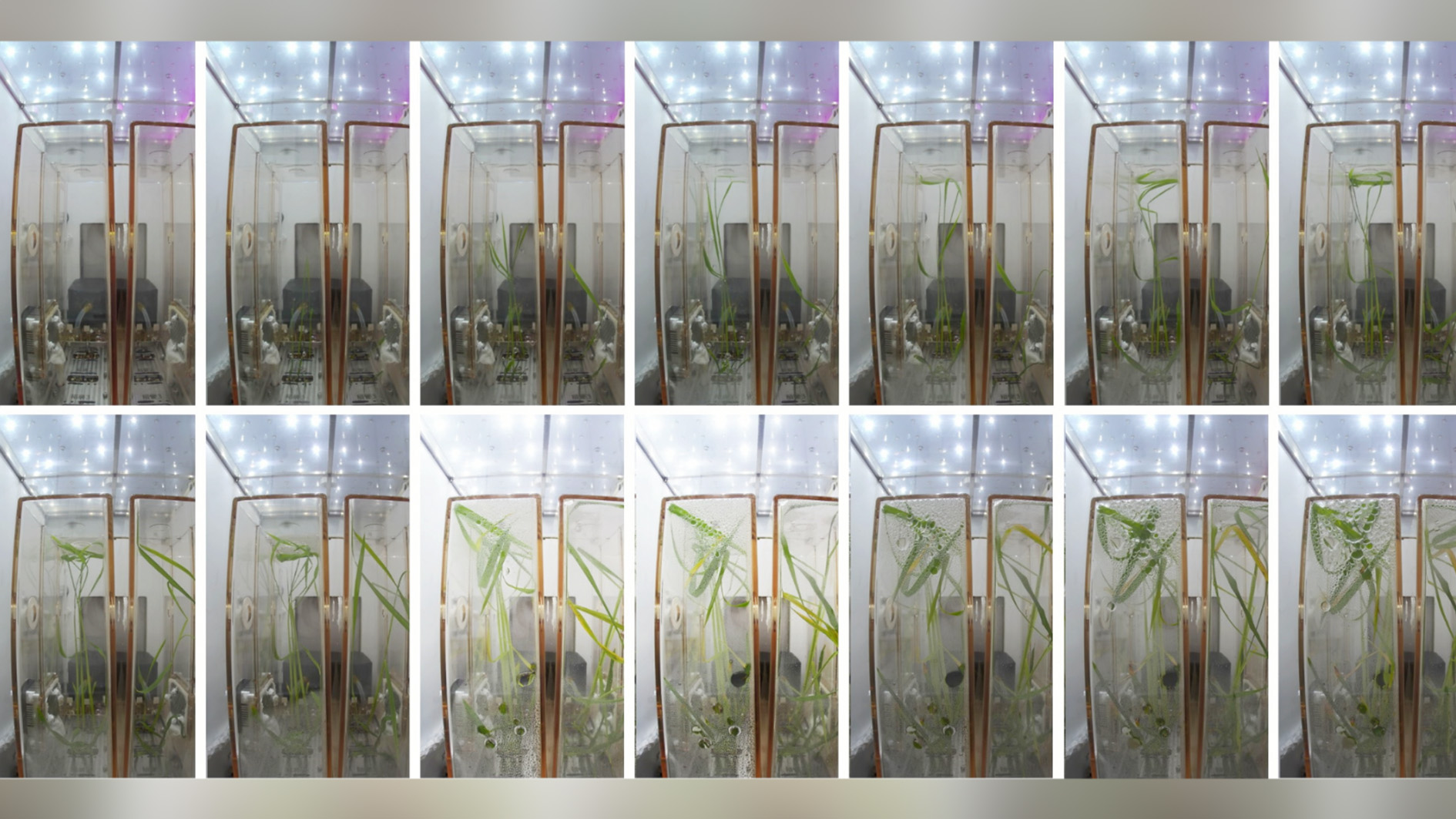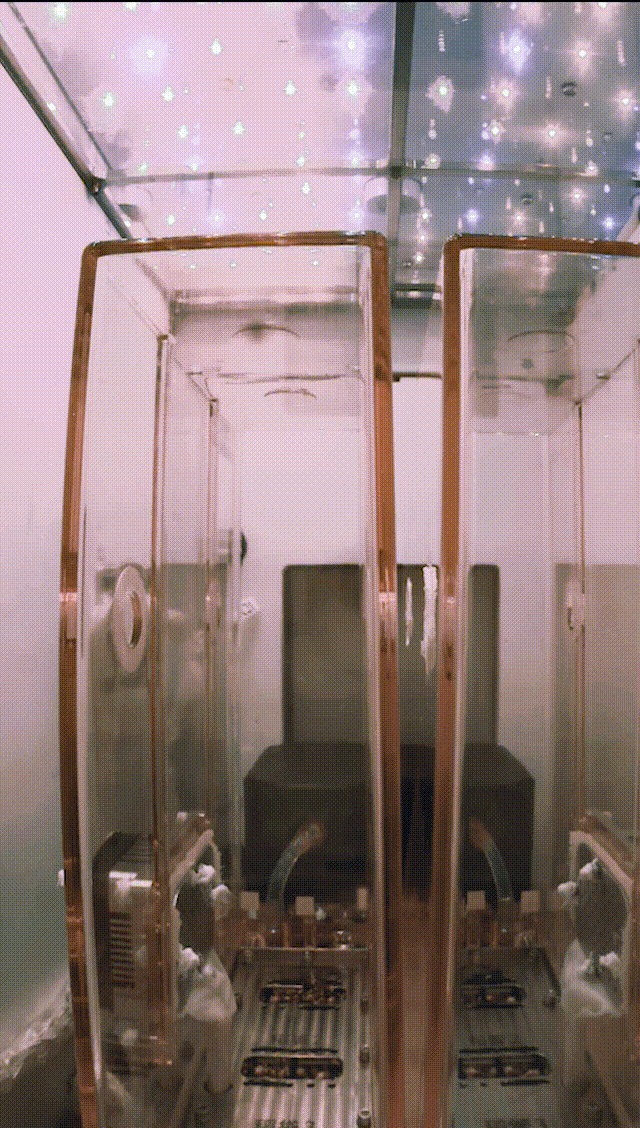
Rice grows in a microgravity environment aboard the China Space Station. /CAS
Rice grows in a microgravity environment aboard the China Space Station. /CAS
China Space Station has made new progress in a life science project which observes a full cycle of different seeds' growth in space.
The samples of two kinds of plant seeds, thale cress and rice, have been in the experiment cabin since July 28. Thale cress is widely used as a model organism for basic research.
The thale cress and rice planting experiments aboard China's Wentian lab module are progressing smoothly, the Chinese Academy of Sciences (CAS) said at a press conference on Monday.
By far, the thale cress has produced four leaves. The seedling of the long-stem rice has grown to about 30 centimeters tall and the short-stem rice has grown to about 6 centimeters.
The thale cress is a representative sample for many green-leaf vegetables such as rapeseed, cabbage and brussel sprouts while rice is an example among many crops including wheat and corn.

Rice grows in a microgravity environment aboard the China Space Station. /CAS
Rice grows in a microgravity environment aboard the China Space Station. /CAS
The two experiments will analyze each plant's life cycle in space and explore how to use a microgravity environment to grow the plants and increase production efficiency, said Zheng Huiqiong, a researcher at the CAS Center for Excellence in Molecular Plant Sciences.

Arabidopsis grow in a microgravity environment aboard the China Space Station. /CAS
Arabidopsis grow in a microgravity environment aboard the China Space Station. /CAS
"In addition, by comparing the flowering of the plants, we can find more crops adapting to the space and the microgravity environment," said Zheng.
Flowering is a crucial phase for a plant to grow new-generation seeds, which can also be critical for long-term human life in space.
Space environment is extremely harsh, meaning it is almost impossible for life from Earth to grow. Crop seeds can be only cultured in sealed artificial environments.
The crops suitable for space planting have to be highly productive with a low energy cost, according to the China Manned Space Agency.
At present, only a few crops, such as wheat and peas, have undergone a complete life cycle experiment in space, according to CAS. There are still many challenges when growing seeds in space, such as plants delaying their flowering phases and growing fewer, lower quality seeds. The project is part of the effort to figure out its growth process.
When the experiments are complete, the astronauts will collect, freeze and store samples from the plants for further testing upon return to Earth.

